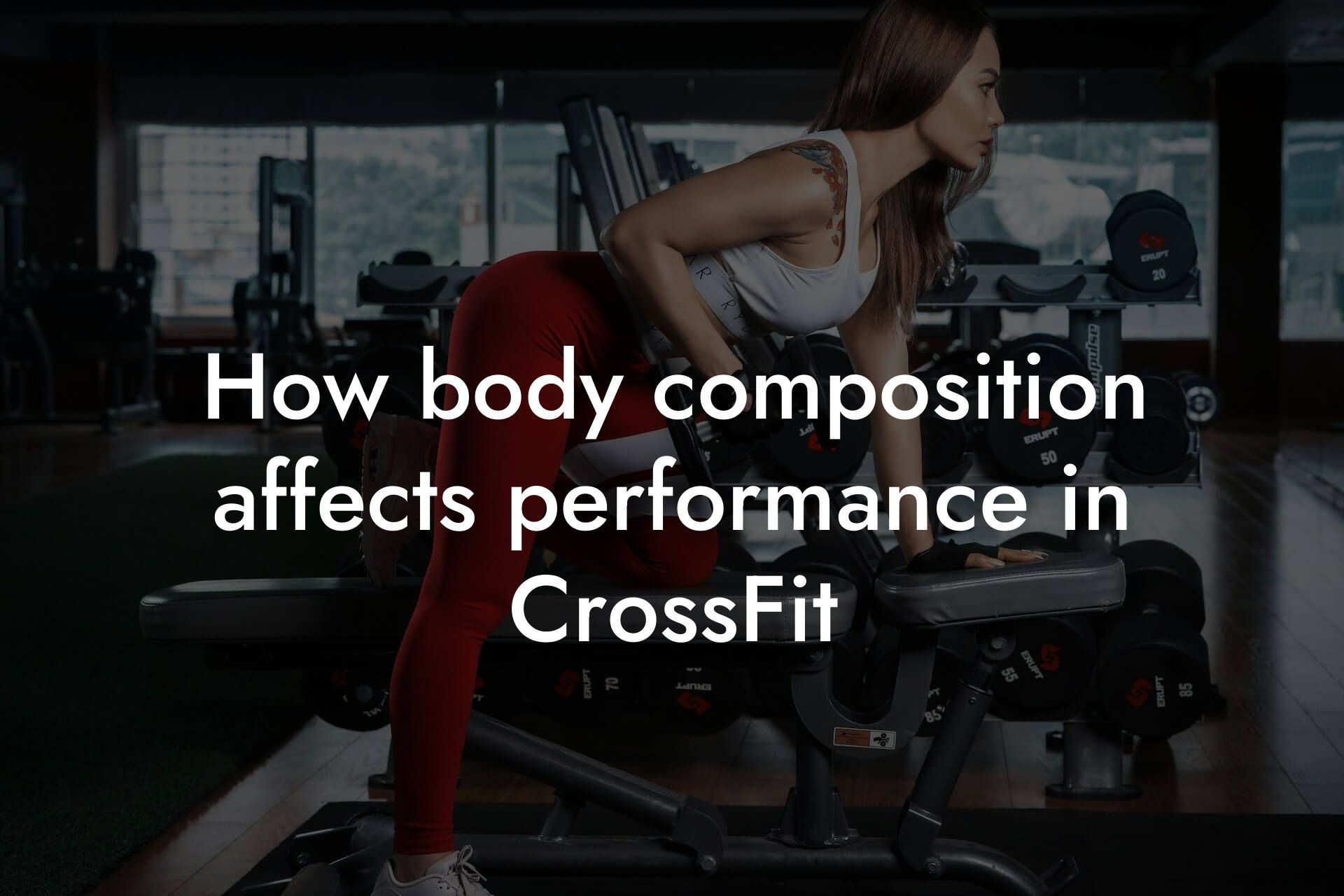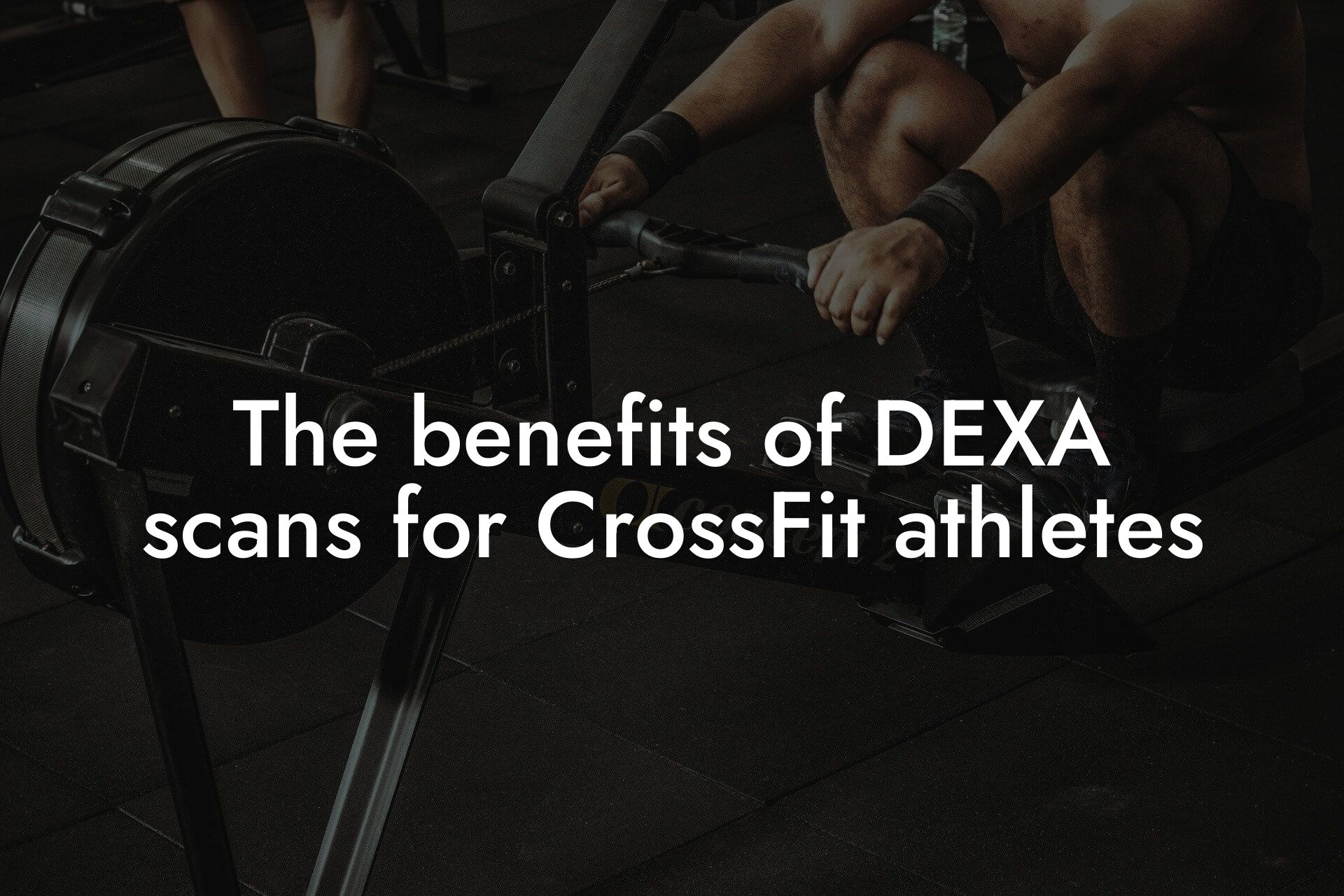As a CrossFit athlete, you know that the off-season is a critical period for recovery, rebuilding, and preparation for the next competitive season. A well-structured off-season training strategy can help you overcome plateaus, improve your overall fitness, and gain a competitive edge. In this article, we'll delve into the essential components of an effective off-season training plan, tailored specifically for CrossFit athletes.
Table of Contents
- Recovery and Rebuilding: The Foundation of Off-Season Training
- Periodization: A Key to Progressive Overload
- Building Strength: The Backbone of CrossFit Performance
- Improving Endurance: A Critical Aspect of CrossFit Fitness
- Power Development: The Key to Explosive Performance
- Nutrition and Supplementation: Fueling Your Off-Season Training
- Tracking Progress: The Importance of Data-Driven Decision Making
- Conclusion: A Well-Structured Off-Season Training Plan for CrossFit Athletes
- Frequently Asked Questions
Recovery and Rebuilding: The Foundation of Off-Season Training
The off-season is an opportunity to address any underlying fatigue, injuries, or imbalances that may have developed during the competitive season. A thorough recovery and rebuilding phase is crucial to restore your body's physiological and psychological systems. This phase should focus on:
- Active recovery techniques, such as light cardio, stretching, and foam rolling
- Strengthening your core and glutes to improve overall stability and power
- Addressing any muscle imbalances or weaknesses through targeted exercises
- Incorporating deload weeks or periods of reduced intensity to allow for mental and physical rejuvenation
Periodization: A Key to Progressive Overload
Periodization is a training methodology that involves alternating periods of intense training with periods of reduced intensity or recovery. This approach allows for progressive overload, which is essential for continued improvement in CrossFit. A well-structured periodization plan should include:
- Macro-cycles: Dividing the off-season into larger blocks of training (e.g., 12-16 weeks)
- Meso-cycles: Breaking down macro-cycles into smaller blocks of training (e.g., 4-6 weeks)
- Micro-cycles: Further dividing meso-cycles into weekly or daily training sessions
Building Strength: The Backbone of CrossFit Performance
Strength is a critical component of CrossFit performance, and the off-season is an ideal time to focus on building it. A strength-focused training plan should include:
- Compound exercises like squats, deadlifts, and bench press
- Accessory exercises that target specific muscle groups, such as the shoulders or legs
- Progressive overload through increases in weight, reps, or sets over time
Improving Endurance: A Critical Aspect of CrossFit Fitness
Endurance is a vital component of CrossFit fitness, and the off-season is an excellent time to work on building your aerobic capacity. A well-structured endurance training plan should include:
- Low-to-moderate intensity cardio exercises, such as jogging, cycling, or rowing
- High-intensity interval training (HIIT) to improve anaerobic endurance
- Incorporating strength training exercises that also challenge your endurance, such as weighted carries or burpees
Power Development: The Key to Explosive Performance
Power is the ability to generate force quickly, and it's a critical component of CrossFit performance. A power-focused training plan should include:
- Explosive exercises like box jumps, depth jumps, and medicine ball throws
- Resistance band training to improve speed and power
- Plyometric exercises, such as jump squats and box jumps, to develop reactive strength
Nutrition and Supplementation: Fueling Your Off-Season Training
A well-structured nutrition plan is essential to support your off-season training. Focus on:
- Consuming a balanced diet that includes lean protein, complex carbohydrates, and healthy fats
- Ensuring adequate caloric intake to support muscle growth and recovery
- Supplementing with protein powder, creatine, and other performance-enhancing nutrients as needed
Tracking Progress: The Importance of Data-Driven Decision Making
Tracking your progress is crucial to making data-driven decisions about your training. Use tools like:
- DEXA scans to monitor body composition and track changes in lean mass and body fat
- Performance metrics, such as 1RM strength or workout completion times, to track improvements in fitness
- Training logs or apps to monitor volume, intensity, and frequency of workouts
Conclusion: A Well-Structured Off-Season Training Plan for CrossFit Athletes
A comprehensive off-season training plan should incorporate recovery and rebuilding, periodization, strength training, endurance development, power training, nutrition, and supplementation, as well as tracking progress. By following these guidelines, you'll be well-prepared to tackle the next competitive season and achieve your fitness goals. Remember to stay focused, stay consistent, and stay patient – the off-season is a critical period for growth and development as a CrossFit athlete.
Frequently Asked Questions
What is the purpose of off-season training for CrossFit athletes?
Off-season training is a crucial period for CrossFit athletes to focus on improving their weaknesses, building strength, and increasing their overall fitness level. It allows athletes to take a step back from the intensity of competition and focus on long-term development, ultimately leading to better performance during the competitive season.
How does off-season training differ from in-season training?
Off-season training is typically characterized by a decrease in intensity and volume, with a focus on building a strong foundation of strength, endurance, and technique. In-season training, on the other hand, is more focused on fine-tuning skills, perfecting strategies, and peaking for competition.
What are the key components of an effective off-season training program?
A well-structured off-season training program should include a combination of strength training, conditioning, mobility and flexibility work, as well as skill development and technique refinement. It's also essential to incorporate rest and recovery strategies to avoid burnout and prevent overtraining.
How long should my off-season training program last?
The length of an off-season training program can vary depending on individual goals and needs. Generally, it can last anywhere from 8-16 weeks, with a minimum of 12 weeks recommended for significant improvements.
What are the benefits of incorporating strength training into my off-season program?
Strength training is essential for CrossFit athletes, as it helps build power, speed, and endurance. It also improves bone density, reduces the risk of injury, and enhances overall athleticism. A strong foundation of strength will translate to better performance in the competitive season.
How can I improve my Olympic lifting technique during the off-season?
To improve your Olympic lifting technique, focus on breaking down the lifts into smaller components, practicing with lighter weights, and incorporating drills and exercises that target specific muscle groups. It's also essential to work with a qualified coach or experienced lifter to receive personalized feedback and guidance.
What are some effective conditioning exercises for CrossFit athletes during the off-season?
Some effective conditioning exercises for CrossFit athletes during the off-season include rowing, running, swimming, and cycling. These exercises improve cardiovascular endurance, increase stamina, and enhance overall fitness. It's also important to incorporate high-intensity interval training (HIIT) to simulate the demands of CrossFit workouts.
How can I improve my gymnastics skills during the off-season?
To improve your gymnastics skills, focus on building a strong foundation of strength, power, and control. Practice fundamental movements such as handstands, ring swings, and bar work, and incorporate exercises that target specific muscle groups, such as the shoulders, back, and core.
What is the importance of mobility and flexibility work during the off-season?
Mobility and flexibility work are crucial during the off-season, as they help improve range of motion, reduce the risk of injury, and enhance overall performance. Incorporate exercises such as stretching, foam rolling, and self-myofascial release to maintain or improve flexibility and mobility.
How can I avoid overtraining during the off-season?
To avoid overtraining, prioritize rest and recovery, and incorporate deload weeks or active recovery days into your training program. Monitor your progress, listen to your body, and adjust your training volume and intensity accordingly. It's also essential to work with a qualified coach or experienced athlete to receive personalized guidance and feedback.
What are some effective strategies for active recovery during the off-season?
Effective strategies for active recovery during the off-season include light swimming, cycling, or rowing, as well as low-intensity yoga or Pilates. These activities promote blood flow, reduce muscle soreness, and enhance overall recovery. It's also important to incorporate rest days, meditation, and relaxation techniques to reduce mental and physical stress.
How can I stay motivated during the off-season?
To stay motivated during the off-season, set specific, measurable, and achievable goals, and break them down into smaller, manageable tasks. Find a training partner or join a community of like-minded athletes to provide support and accountability. It's also essential to celebrate small victories and acknowledge progress along the way.
What are some common mistakes CrossFit athletes make during the off-season?
Common mistakes CrossFit athletes make during the off-season include not prioritizing rest and recovery, failing to address weaknesses, and neglecting to incorporate variety and periodization into their training program. It's also important to avoid trying to peak too early and to focus on long-term development rather than short-term gains.
How can I incorporate periodization into my off-season training program?
To incorporate periodization into your off-season training program, divide your training into specific blocks or phases, each with a specific focus or goal. This can include strength-focused phases, conditioning-focused phases, and technique-refinement phases. Periodization helps avoid plateaus, promotes progressive overload, and enhances overall performance.
What are some effective ways to track progress during the off-season?
Effective ways to track progress during the off-season include monitoring workout performance, tracking body fat percentage, and taking progress photos. It's also important to track sleep, nutrition, and recovery metrics to ensure overall health and well-being.
How can I adjust my nutrition during the off-season?
During the off-season, focus on maintaining a balanced diet that supports overall health and well-being. Prioritize whole, nutrient-dense foods, and avoid excessive caloric intake. It's also important to stay hydrated and to incorporate post-workout nutrition strategies to support recovery.
What are some effective strategies for managing stress during the off-season?
Effective strategies for managing stress during the off-season include meditation, yoga, and relaxation techniques. It's also important to prioritize sleep, maintain a healthy work-life balance, and engage in activities outside of training to reduce mental and physical stress.
How can I stay accountable during the off-season?
To stay accountable during the off-season, find a training partner or join a community of like-minded athletes. Share your goals and progress with a coach or mentor, and schedule regular check-ins to track progress and provide feedback. It's also important to set consequences for yourself if you don't meet your goals, such as donating to a charity or performing an extra workout.
What are some common myths about off-season training for CrossFit athletes?
Common myths about off-season training for CrossFit athletes include the idea that you need to take a complete break from training, that you should only focus on weaknesses, or that you need to peak during the off-season. It's essential to debunk these myths and focus on a well-structured, periodized training program that addresses strengths, weaknesses, and overall fitness.
How can I incorporate mental preparation into my off-season training program?
To incorporate mental preparation into your off-season training program, focus on visualization techniques, positive self-talk, and breathing exercises. It's also important to work on building confidence, developing a growth mindset, and cultivating a strong support network.
What are some effective ways to stay engaged and motivated during the off-season?
Effective ways to stay engaged and motivated during the off-season include setting new goals, trying new exercises or workouts, and incorporating variety into your training program. It's also important to stay connected with the CrossFit community, attend seminars or workshops, and read books or articles related to fitness and performance.
How can I ensure a successful transition from the off-season to the competitive season?
To ensure a successful transition from the off-season to the competitive season, focus on gradually increasing intensity and volume, while maintaining a focus on rest and recovery. It's also essential to fine-tune your skills, perfect your strategies, and peak at the right time to ensure optimal performance.
Here are some related articles you might love...
- How body composition affects performance in CrossFit
- Balancing strength, speed, and flexibility in CrossFit
- The benefits of DEXA scans for CrossFit athletes
- Nutrition tips for sustaining energy during CrossFit workouts
- Recovery techniques for CrossFit athletes after intense WODs
- The role of muscle mass in CrossFit endurance and power
- Reducing body fat for better performance in CrossFit competitions
- Bone density and injury prevention in CrossFit
- Strength and conditioning programs for CrossFit athletes
Zak Faulkner
Zak Faulkner is a leading authority in the realm of physical health and body composition analysis, with over 15 years of experience helping professionals optimise their fitness and well-being. As one the experts behind Tano Performance Group, Zak has dedicated his career to providing in-depth, science-backed insights that empower clients to elevate their physical performance and overall health.
With extensive knowledge of DEXA technology, Zak specializes in delivering comprehensive body assessments that offer precise data on body fat, muscle mass, bone density, and overall physique. His expertise enables individuals to make informed decisions and achieve their fitness goals with accuracy and confidence. Zak’s approach is rooted in a deep understanding of human physiology, combined with a passion for helping clients unlock their full potential through personalised strategies.
Over the years, Zak has earned a reputation for his commitment to excellence, precision, and client-focused service. His guidance is trusted by top professionals who demand the best when it comes to their health. Whether advising on fitness programs, nutritional strategies, or long-term wellness plans, Zak Faulkner’s insights are a valuable resource for anyone serious about taking their health and fitness to the next level.
At Tano Performance Group, Zak continues to lead our Content Team revolutionising how professionals approach their physical health, offering unparalleled expertise that drives real results.




